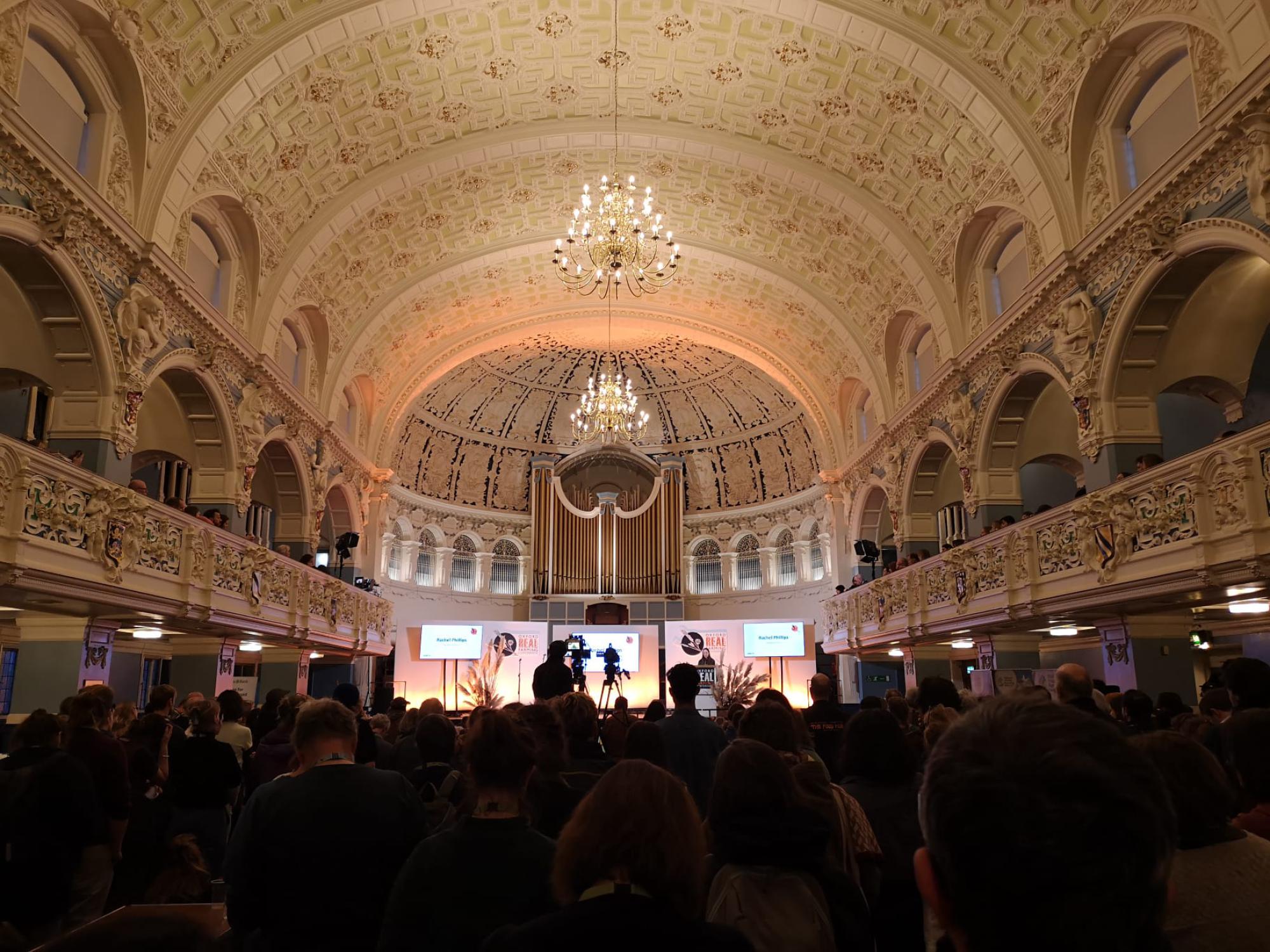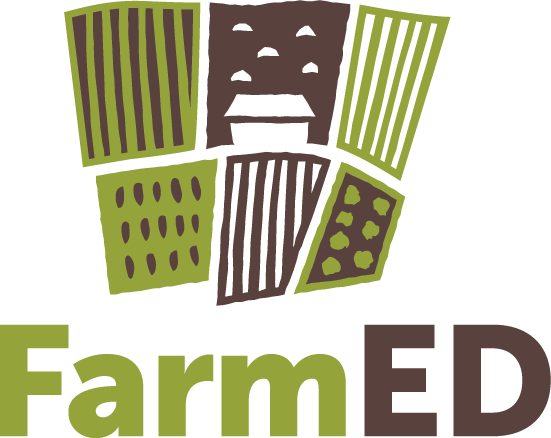FarmED at the Oxford Farming Conferences
Jan 14, 2025

We’re fortunate to be located close to Oxford, where two of the world’s most important farming conferences - the Oxford Farming Conference (OFC) and Oxford Real Farming Conference (ORFC) - take place each January. This year, our Agricultural Lead, Kate Henderson, was a delegate at OFC while Public Engagement Coordinator, Alex Dye, attended ORFC, so they were able to share their experiences of these two conferences. OFC and ORFC take place at the same time, in the same city, but have evolved in very different ways.
The first Oxford Farming Conference took place nearly ninety years ago, in 1936. Every January, in the historic and inspiring surroundings of Oxford University, it attracts over 600 in-person delegates, who include UK and overseas politicians, farmers, agribusinesses, NGOs, leading scientists, opinion formers, scholars and royalty, plus hundreds more who attend online. This year OFC25 set out to explore how current and future farming policies provide new opportunities for farmers; how we can adapt, with the help of science and new practices, to the changing natural world; and how change and adversity can produce inspiring innovators and leaders who can transform farming and food production.
In 2009, agricultural writer Graham Harvey invited Colin Tudge and Ruth West (founders of the Campaign for Real Farming) to help establish an alternative farming conference and in January 2010, the Oxford Real Farming Conference was launched. ORFC has established itself as a place to share progressive ideas and the focus is on subjects including agroecology, regenerative agriculture, organic farming and indigenous food and farming systems. ORFC now welcomes 1,800 delegates.
‘I had a brilliant time at OFC,’ says Kate. ‘It was so friendly and inspiring.’
The theme of this year’s conference was Facing Change, Finding Opportunity. Nearly every talk was underpinned with the fact that we need to address climate change, but also that farms need to be profitable in order for this to happen. There were some great talks on human nutrition, climate change, mental health, neurodiversity, food insecurity and some really inspiring talks from people who have overcome adversity.
‘The politicians' talks were accompanied by tractor horns from the demonstrations outside, but everyone in the room was very polite and listened to what they had to say. Another thing that was mentioned a lot was the need to surround yourself with good people and not to try to do everything alone.’
Alex kicked off ORFC with the Doing Dairy Differently session, which featured friend of FarmED, Hallam Duckworth, as well as Anna Bowen and Phyllida Warmington. The discussion looked at the practicalities and scalability of cow-calf dairies and their importance for animal welfare.
The debate about inheritance tax changes and their effect on small farms was center stage, with Guy Watson-Singh arguing for the tax and Anita McNaught putting the case against it. The debate considered whether the new taxes might lead to farmers selling their land to developers or whether it will lead to a decrease in land prices, allowing young farmers to obtain land to farm.
Alex is FarmED’s resident entomologist and attended two sessions on insects.
Integrated Pest Management looked at how monoculture has resulted in the need for IPM and how using multiple methods of pest control (insect, plant, fungi etc) in tandem can achieve better effects. Andy Dibben (head grower at Abbey Home Farm) said he leaves stubble from crops for aphids which can lead to mass feeding and breeding events for predators to build up their populations, ready for the following year. Flies and bees have been shown to meet criteria for sentience, but what does this mean for future research? This was the question posed at the session titled: What Might Insect Sentience Mean for Agroecology?
Looking forward to our forthcoming Pastured Pigs course at FarmED, Alex also went to hear David Carruth (Future Forest Company) talk about Agroforestry with Pigs and was interested to learn how biodiversity improves by an average of 60% in pig grazed areas of forest, compared to non-grazed.
‘It was a very busy couple of days meeting people and hearing talks,’ says Alex. ‘It was energising to be surrounded by people who felt so galvanised and positive about change. During the closing plenary, Dan Saladino talked about how inspiring everything had been and how we all need to take this message out to the rest of the world.’
We’ll be continuing such discussions at FarmED over the next twelve months, so check out what’s happening on our demonstration farm and in the conference barns, follow us on social media and subscribe to The FarmED Podcast.
Recent news items




